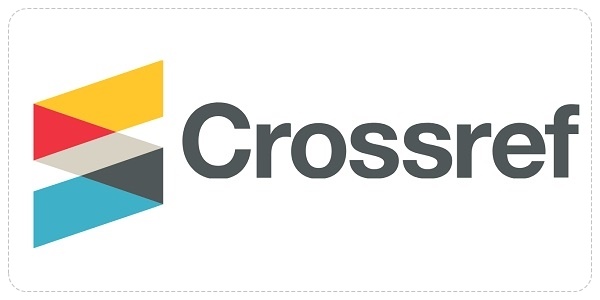Website-Based E-Module Development to Improve Students' Cognitive Learning Outcomes on Fish Product Production Materials
Abstract
Keywords
Full Text:
PDFReferences
Arum, W. S. A. (2006). Pengembangan bahan ajar di perguruan tinggi. Perspektif Ilmu Pendidikan, 14(07), 66–75.
Awang, I. S. (2015). Kesulitan belajar IPA peserta didik sekolah dasar. Vox Edukasi, 6(2), 108–122.
Bhakta, K., & Dutta, N. (2016). Impact of information technology on teaching-learning process. International Research Journal of Interdisciplinary & Multidisciplinary Studies, 2(11), 131-138.
Dilmaç, S. (2020). Students' opinions about the distance education to art and design courses in the pandemic process. World Journal of Education, 10(3), 113-126.
Eldarni, E. Y. (2019). Pengembangan e-modul berbasis web dengan menggunakan aplikasi moodle pada mata kuliah pengelolaan perpustakaan. Jurnal Edutech, 18(1), 25–36.
Fitriani, F., & Indriaturrahmi. (2019). Implementasi e-modul mata pelajaran bahasa indonesia berbasis web. In Prosiding Seminar Nasional FKIP Universitas Mataram (pp. 11–12). Mataram: Universitas Mataram.
Gherheș, V., Stoian, C. E., Fărcașiu, M. A., & Stanici, M. (2021). E-learning vs. face-to-face learning: Analyzing students’ preferences and behaviors. Sustainability, 13(8), 1-15.
Gunawan, I., Sumarsono, R. B., Benty, D. D. N., Baharudin, A., Wardani, A. D., Kusumaningrum, D. E., & Prayoga, A. G. (2021, September). The effectiveness of using SIPEJAR to improve the quality of learning with the information technology-based interactive skill station method. In 2021 7th International Conference on Education and Technology (ICET) (pp. 81-89). IEEE.
Handiwidjojo, W., & Ernawati, L. (2016). Pengukuran tingkat ketergunaan (usability) sistem informasi keuangan studi kasus : Duta wacana internal transaction (duwit). Jurnal JUISI, 02(01), 49–55.
Imansari, N., & Sunaryantiningsih, I. (2017). Pengaruh penggunaan e-modul interaktif terhadap hasil belajar mahasiswa pada materi kesehatan dan keselamatan kerja. VOLT: Jurnal Ilmiah Pendidikan Teknik Elektro, 2(1), 11-16.
Johan, R. C., Sutisna, M. R., Rullyana, G., & Ardiansah, A. (2020). Developing online learning communities. In Borderless Education as a Challenge in the 5.0 Society (pp. 145-153). CRC Press.
Karakaya, F., Adigüzel, M., Üçüncü, G., Çimen, O., & Yilmaz, M. (2021). Teachers’ views towards the effects of Covid-19 pandemic in the education process in Turkey. Participatory Educational Research, 8(2), 17-30.
Kusuma, A. D., & Pribadi, J. D. (2018). Pembuatan website dengan menggunakan aplikasi wix sebagai media promosi pada home industry tiga saudara plastik Malang. Jurnal Aplikasi Bisnis, 3(1), 298–303.
La Hanisi, A., Risdiany, R., Dwi Utami, Y., & Sulisworo, D. (2018). The use of WhatsApp in collaborative learning to improve English teaching and learning process. International Journal of Research Studies in Educational Technology, 7(1), 29-35.
Linda, L., & Ri'aeni, I. (2018). Whatsapp messenger as a mobile media to learn writing for EFL students. Jurnal Ilmu Komunikasi Efek, 1(2), 156-165.
Mahardika, A., & Destiana, H. (2014). Animasi interaktif pembelajaran pengenalan hewan dan alat transportasi untuk siswa taman kanak-kanak. Jurnal Pilar Nusa Mandiri, 10(1), 100–111.
Makhrus, M., Abtokhi, A., & Hidayatullah, Z. (2021, April). Learning case study in the pandemic covid-19: learning targets, needs analysis, obstacles, and solutions. In International Conference on Engineering, Technology and Social Science (ICONETOS 2020) (pp. 788-793). Atlantis Press.
Molenda, M. (2015). In search of the elusive ADDIE Model. Performance Improvement, 54(2), 40– 43.
Munir. (2009). Pembelajaran jarak jauh berbasis teknologi informasi dan komunikasi. Bandung: Alfabeta, CV.
Priatmoko, S., Sugiri, W. A., & Islamy, M. I. (2021, April). Distance Learning for New Students in the Era of Pandemic Coronavirus Disease (Covid-19): Implementation and Barriers. In International Conference on Engineering, Technology and Social Science (ICONETOS 2020) (pp. 607-613). Atlantis Press.
Qazi, A., Hardaker, G., Ahmad, I. S., Darwich, M., Maitama, J. Z., & Dayani, A. (2021). The role of Information & Communication Technology in Elearning environments: A systematic review. IEEE Access, 9, 45539-45551.
Ranuharja, F., Ganefri, G., Fajri, B. R., Prasetya, F., & Samala, A. D. (2021). Development of interactive learning media edugame using ADDIE model. Jurnal Teknologi Informasi Dan Pendidikan, 14(1), 53-59.
Santoso, & Nurmalina, R. (2017). Perencanaan dan pengembangan aplikasi absensi mahasiswa menggunakan smart card guna pengembangan kampus cerdas. Jurnal Integrasi, 9(1), 84–91.
Sasmita, R. S. (2020). Pemanfaatan internet sebagai sumber belajar. Jurnal Pendidikan Dan Konseling, 2(1), 99–103.
Selvaraj, A., Radhin, V., Nithin, K. A., Benson, N., & Mathew, A. J. (2021). Effect of pandemic based online education on teaching and learning system. International Journal of Educational Development, 85, 102444.
Septantiningtyas, N. (2019). Pengaruh pembelajaran jarak jauh dengan aplikasi Google Class terhadap hasil belajar mahasiswa. Edureligia, 2(2), 1–5.
Srivastava, S., & Agarwal, N. (2020). Psychological & social effects of pandemic Covid-19 on education system, business growth, economic crisis & health issues globally. Globus-An International Journal of Management and IT, 11(2), 40-45.
Suanah, S. (2019). Pengembangan media pembelajaran berbasis web desain wix materi bangun ruang matematika SD Kelas V. In Proceeding of ICECRS (Vol. 2, pp. 243–252). Sidoarjo: Universitas Muhammadiyah Sidoarjo.
Susilana, R., Rullyana, G., & Wulandari, Y. (2022). Pedagogia Dictionary: Web Application Development. International Journal of Instruction, 15(1), 197-218.
Sutrisno, V. L. P. (2016). Faktor-faktor yang mempengaruhi hasil belajar siswa pada pembelajaran praktik kelistrikan otomotif SMK di Kota Yogyakarta. Jurnal Pendidikan Vokasi, 6(1), 110– 120.
Utomo, K. D., Soegeng, A. Y., Purnamasari, I., & Amaruddin, H. (2021). Pemecahan masalah kesulitan belajar siswa pada masa pandemi covid-19 kelas IV SD. Jurnal Mimbar PGSD Undiksha, 9(1), 1–9.
Widodo, A., Nursaptini, N., Novitasari, S., Sutisna, D., & Umar, U. (2020). From face-to-face learning to web base learning: How are student readiness. Premiere Educandum: Jurnal Pendidikan Dasar Dan Pembelajaran, 10(2), 149-160.
Widyanti, S. M. (2020). Pengendalian mutu bahan baku pengolahan hewani.
Widyastuti, E. (2019, March). Using the ADDIE model to develop learning material for actuarial mathematics. In Journal of Physics: Conference Series (Vol. 1188, No. 1, p. 012052). IOP Publishing.
Yolanda, N., & Rizal, F. (2021). Website based e-module development on computer system in vocational high school. Jurnal Teknologi Informasi dan Pendidikan, 14(1), 40-46.
DOI: https://doi.org/10.17509/pdgia.v20i2.45841
Refbacks
- There are currently no refbacks.
INDEXED BY

This work is licensed under a Creative Commons Attribution-ShareAlike 4.0 International License
















